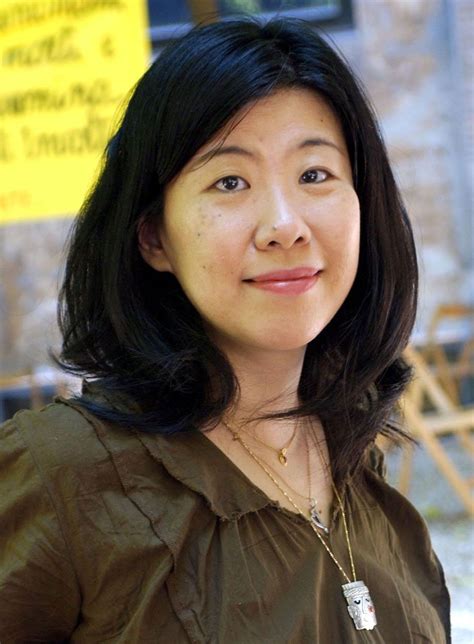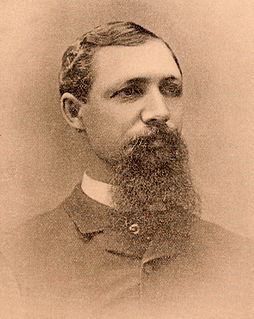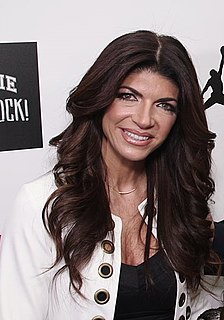Top 268 Frighten Quotes & Sayings - Page 5
Explore popular Frighten quotes.
Last updated on April 19, 2025.
I think a lot of people are involved in art because of the fashion of art and the conversation. It gives them a certain sophistication, something to speak about. But art is, if it's conceptual, really about understanding the concept. And if it's beautiful, it's about seeing the beauty. It's gone much further than that now. There's too much commercialism attached to art. If the market cracks one day big-time, you'll frighten so many people away who will never come back. Because they don't really feel for art. People who buy art should want it because they love it, they want to enjoy it.
Lancelot: Morgaine, Morgaine - kinswoman, I have never seen you weep. Morgaine: Are you like so many men, afraid of a woman's tears? (...) Lancelot: No (...) it makes them seem so much more real, so much more vulnerable - women who never weep frighten me, because I know they are stronger than I, and I am always a little afraid of what they will do.
I see a kind of thirst in her expression, the same one I saw when she told me about her brother in the back room of the tattoo parlor. Before the attack simulation I might have called it a thirst for justice, or even revenge, but now I am able to identify it as a thirst for blood. And even as it frightens me, I understand it. Which should probably frighten me even more.
I wonder why anyone would hesitate to be generous with their writing. I mean, if you really want to make a living, go to Wall Street and trade oil futures ... We're writers. We're doing something that is inherently a generous act. We're exposing ourselves to the muse and to the things that frighten us. Why do that if you're not willing to be generous? And paradoxically, almost ironically, it turns out that the more generous you are, the more money you make. But that's secondary. For me, the privilege of being generous is why I get to do this.
You panicked". Venetia's voice is suddenly throbbing, as though she can't control a long-buried anger. "You panicked, Luke, and we lost the best relationship that we had. Everyone was jealous of us at Cambridge, everyone. We were perfect together." We weren't perfect!" He looks at her incredulously. "And I didn't panic---" You did! You couldn't cope with the commitment! It frightened you!" It did not frighten me!" Luke shouts, exasperated. "It made me realize you weren't the person I wanted to have children with. Or spend the rest of my life with. Ever. And that's why I ended it!
On May 7, a few weeks after the accident at Three-Mile Island, I was in Washington. I was there to refute some of that propaganda that Ralph Nader, Jane Fonda and their kind are spewing to the news media in their attempt to frighten people away from nuclear power. I am 71 years old, and I was working 20 hours a day. The strain was too much. The next day, I suffered a heart attack. You might say that I was the only one whose health was affected by that reactor near Harrisburg. No, that would be wrong. It was not the reactor. It was Jane Fonda. Reactors are not dangerous.
Perhaps he could still weave together the broken threads of his life. And yet, I wanted him here now. I needed him here. In the darkness, if I sat very still, I could almost feel his presence by me, quite near, but not too near. Didn't I promise to keep you safe, he would say softly. I have never broken a promise. Don't look so worried, Jenny. And yet, he would be careful. Careful not to move too close. Careful not to frighten me. Waiting still. I am your shelter. Don't be afraid.
There's definitely a lot of trash that comes with the prize of being famous. It's a nice gift, but there's a lot of wrapping and paper and junk to cut through. Back then, when a movie came out and people saw you on the street, their reaction was so supercharged that it was scary. It would frighten other people. It used to really rattle me. I mean, everybody would love to have their clothes torn off by a mob of girls, but being screamed at is different.
People who have lost their hunger for justice are not ultimately powerful. They are like sick people who have lost their appetite for what is truly nourishing. Such sick people should not frighten or discourage us. They should be prayed for along with the sick people who are in the hospital. "The love for justice that is in us is not only the best part of our being but it is also the most true to our nature."
Ultimately, though, it's living people that frighten me the most. It's always seemed to me that nothing could be scarier than a person, because as dreadful places can be, they're still just places; and no matter how awful ghosts might seem, they're just dead people. I always thought that the most terrifying things anyone could ever think up were the things living people came up with.
The supernatural Christ of the New Testament, the god of orthodox Christianity, is dead. But priestcraft lives and conjures up the ghost of this dead god to frighten and enslave the masses of mankind. The name of Christ has caused more persecutions, wars, and miseries than any other name has caused. The darkest wrongs are still inspired by it. The wails of anguish that went up from Kishenev, Odessa, and Bialystok still vibrate in our ears.
Buddhas and Bodhisattvas will for seven days appear to you in their benign and peaceful aspect. Their light will shine upon you, ... Wonderful and delightful though they are, The Buddhas may nevertheless frighten you. Do not give in to your fright! Do not run away! Serenely contemplate the spectacle before you! Overcome your fear, and feel no desire! Realize that these are the rays of the grace of the Buddhas, who come to receive you into their Buddha-realms. Pray to them with intense faith and humility.
What is a normal child like? Does he just eat and grow and smile sweetly? No, that is not what he is like. The normal child, if he has confidence in mother and father, pulls out all the stops. In the course of time, he tries out his power to disrupt, to destroy, to frighten, to wear down, to waste, to wangle, and to appropriate . . . At the start he absolutely needs to live in a circle of love and strength (with consequent tolerance) if he is not to be too fearful of his own thoughts and of his imaginings to make progress in his emotional development.
I do not want to frighten you by telling you about the temptations life will bring. Anyone who is healthy in spirit will overcome them. But there is something I want you to realize. It does not matter so much what you do. What matters is whether your soul is harmed by what you do. If your soul is harmed, something irreparable happens, the extent of which you won't realize until it will be too late.
I think all of us have a sense if we imagine the kind of world we would face if the people who bombed the mess hall in Mosul, or the people who did the bombing in Spain, or the people who attacked the United States in New York, shot down the plane over Pennsylvania and attacked the Pentagon, the people who cut off peoples' heads on television to intimidate, to frighten indeed the word 'terrorized' is just that. Its purpose is to terrorize, to alter behavior, to make people be something other than that which they want to be.
First of all, Buddhism is neither pessimistic nor optimistic. If anything at all, it is realistic, for it takes a realistic view of life and the world. It looks at things objectively (yath?bh?tam). It does not falsely lull you into living in a fool's paradise, nor does it frighten and agonize you with all kinds of imaginary fears and sins. It tells you exactly and objectively what you are and what the world around you is, and shows you the way to perfect freedom, peace, tranquility and happiness.
What is a poet? An unhappy man who hides deep anguish in his heart, but whose lips are so formed that when the sigh and cry pass through them, it sounds like lovely music.... And people flock around the poet and say: 'Sing again soon' - that is, 'May new sufferings torment your soul but your lips be fashioned as before, for the cry would only frighten us, but the music, that is blissful.
We're a lukewarm people for all our feast days and hard work. Not much touches us, but we long to be touched. We lie awake at night willing the darkness to part and show us a vision. Our children frighten us in their intimacy, but we make sure they grow up like us. Lukewarm like us. On a night like this, hands and faces hot, we can believe that tomorrow will show us angels in jars and that the well-known woods will suddenly reveal another path.
Demons frighten us because we set ourselves up to be frightened. We are overly attached to our reputations and possessions. When we love and desire what we should be rejecting, we are in conflict with our true selves. That's when the negative energies catch us and use our weapons against us. Instead of taking up what we have to defend ourselves, we put our swords in the hands of our enemies and make them attack us.
It is ... necessary to whip up the population in support of foreign adventures. Usually the population is pacifist, just like they were during the First World War. The public sees no reason to get involved in foreign adventures, killing, and torture. So you have to whip them up. And to whip them up you have to frighten them.
Yelling a battle cry—more to motivate himself than frighten his foes—Lukel grabbed the table leg and swung it at a soldier. The wood bounced off the man's helmet, but the blow was powerful enough to daze him, so Lukel followed it with a solid blow to the face. The soldier dropped and Lukel grabbed his weapon. Now he had a sword. He only wished he knew how to use it.
Actually, the decision was not only expedient but necessary. The severity of this summary justice showed the world that we would continue to fight mercilessly, stopping at nothing. The execution of the Tsar's family was needed not only in order to frighten, horrify, and dishearten the enemy but also in order to shake up our own ranks, to show them that there was no turning back, that ahead lay either complete victory or complete ruin.
And there were other rocks that were like animals, creeping, horrible animals, putting out their tongues, and others were like words I could not say, and others like dead people lying on the grass. I went on among them, though they frightened me, and my heart was full of wicked song they put into it; and I wanted to make faces and twist myself about the way they did, and I went on and on a long way till at last I liked the rocks and they didn’t frighten me any more
Why did you leave? (Aiden) I took care of the person harassing him. Threat gone. Job eliminated. Anything else you want to know? Dental records, fingerprints? Retinal scan? (Leta) Urine sample would work. (Aiden) What cup you want me to use? (Leta) Does anything faze you? (Aiden) I fight people for a living. Do you honestly think peeing in a cup is going to frighten me? (Leta)
What kind of expression is this - "punishing Israel"? Are we a vassal state of yours? Are we a banana republic? Are we youths of fourteen who, if they don't behave properly, are slapped across the fingers? Let me tell you who this government is composed of. It is composed of people whose lives were spent in resistance, in fighting and in suffering. You will not frighten us with "punishments." He who threatens us will find us deaf to his threats. We are only prepared to listen to rational arguments. You have no right to "punish" Israel - and I protest at the very use of this term.
A king is a mortal god on earth, unto whom the living God hath lent his own name as a great honour; but withal told him, he should die like a man, lest he should be proud, and flatter himself that God hath with his name imparted unto him his nature also. JOHN LOCKE, "Of a King", The Conduct of the Understanding: Essays, Moral, Economical, and Political A king may be a tool, a thing of straw; but if he serves to frighten our enemies, and secure our property, it is well enough: a scarecrow is a thing of straw, but it protects the corn.
Fear is like a little garden spider that makes us jump back or the poor lost bee on the steering wheel that we blame for our automobile wreck. The problem in fear is our response - the way we treat animals or insects that frighten us. . . . Fear is also the universal scapegoat we blame when we take flight from intimacy or shrink up inside ourselves in a thousand little ways.
I have something I need to tell you," he says. I run my fingers along the tendons in his hands and look back at him. "I might be in love with you." He smiles a little. "I'm waiting until I'm sure to tell you, though." "That's sensible of you," I say, smiling too. "We should find some paper so you can make a list or a chart or something." I feel his laughter against my side, his nose sliding along my jaw, his lips pressing my ear. "Maybe I'm already sure," he says, "and I just don't want to frighten you." I laugh a little. "Then you should know better." "Fine," he says. "Then I love you.


























